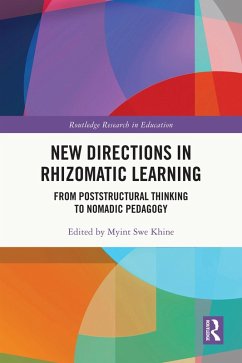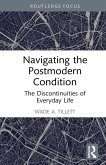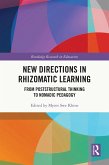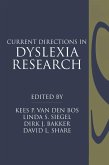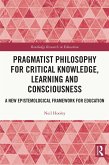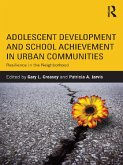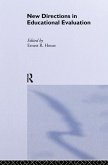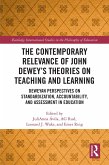New Directions in Rhizomatic Learning (eBook, PDF)
From Poststructural Thinking to Nomadic Pedagogy
Redaktion: Khine, Myint Swe
40,95 €
40,95 €
inkl. MwSt.
Sofort per Download lieferbar

20 °P sammeln
40,95 €
Als Download kaufen

40,95 €
inkl. MwSt.
Sofort per Download lieferbar

20 °P sammeln
Jetzt verschenken
Alle Infos zum eBook verschenken
40,95 €
inkl. MwSt.
Sofort per Download lieferbar
Alle Infos zum eBook verschenken

20 °P sammeln
New Directions in Rhizomatic Learning (eBook, PDF)
From Poststructural Thinking to Nomadic Pedagogy
Redaktion: Khine, Myint Swe
- Format: PDF
- Merkliste
- Auf die Merkliste
- Bewerten Bewerten
- Teilen
- Produkt teilen
- Produkterinnerung
- Produkterinnerung

Bitte loggen Sie sich zunächst in Ihr Kundenkonto ein oder registrieren Sie sich bei
bücher.de, um das eBook-Abo tolino select nutzen zu können.
Hier können Sie sich einloggen
Hier können Sie sich einloggen
Sie sind bereits eingeloggt. Klicken Sie auf 2. tolino select Abo, um fortzufahren.

Bitte loggen Sie sich zunächst in Ihr Kundenkonto ein oder registrieren Sie sich bei bücher.de, um das eBook-Abo tolino select nutzen zu können.
Drawing on the theories and philosophies of Deleuze and Guattari, this edited collection explores the concept of rhizomatic learning and consolidates recent explorations in theory building and multidisciplinary research to identify new directions in the field.
- Geräte: PC
- mit Kopierschutz
- eBook Hilfe
Andere Kunden interessierten sich auch für
![Navigating the Postmodern Condition (eBook, PDF) Navigating the Postmodern Condition (eBook, PDF)]() Wade A. TillettNavigating the Postmodern Condition (eBook, PDF)22,95 €
Wade A. TillettNavigating the Postmodern Condition (eBook, PDF)22,95 €![New Directions in Rhizomatic Learning (eBook, ePUB) New Directions in Rhizomatic Learning (eBook, ePUB)]() New Directions in Rhizomatic Learning (eBook, ePUB)40,95 €
New Directions in Rhizomatic Learning (eBook, ePUB)40,95 €![Current Directions in Dyslexia Research (eBook, PDF) Current Directions in Dyslexia Research (eBook, PDF)]() Current Directions in Dyslexia Research (eBook, PDF)52,95 €
Current Directions in Dyslexia Research (eBook, PDF)52,95 €![Pragmatist Philosophy for Critical Knowledge, Learning and Consciousness (eBook, PDF) Pragmatist Philosophy for Critical Knowledge, Learning and Consciousness (eBook, PDF)]() Neil HooleyPragmatist Philosophy for Critical Knowledge, Learning and Consciousness (eBook, PDF)42,95 €
Neil HooleyPragmatist Philosophy for Critical Knowledge, Learning and Consciousness (eBook, PDF)42,95 €![Adolescent Development and School Achievement in Urban Communities (eBook, PDF) Adolescent Development and School Achievement in Urban Communities (eBook, PDF)]() Adolescent Development and School Achievement in Urban Communities (eBook, PDF)51,95 €
Adolescent Development and School Achievement in Urban Communities (eBook, PDF)51,95 €![New Directions in Educational Evaluation (eBook, PDF) New Directions in Educational Evaluation (eBook, PDF)]() Ernest R. HouseNew Directions in Educational Evaluation (eBook, PDF)39,95 €
Ernest R. HouseNew Directions in Educational Evaluation (eBook, PDF)39,95 €![The Contemporary Relevance of John Dewey's Theories on Teaching and Learning (eBook, PDF) The Contemporary Relevance of John Dewey's Theories on Teaching and Learning (eBook, PDF)]() The Contemporary Relevance of John Dewey's Theories on Teaching and Learning (eBook, PDF)42,95 €
The Contemporary Relevance of John Dewey's Theories on Teaching and Learning (eBook, PDF)42,95 €-
-
-
Drawing on the theories and philosophies of Deleuze and Guattari, this edited collection explores the concept of rhizomatic learning and consolidates recent explorations in theory building and multidisciplinary research to identify new directions in the field.
Dieser Download kann aus rechtlichen Gründen nur mit Rechnungsadresse in A, B, BG, CY, CZ, D, DK, EW, E, FIN, F, GR, HR, H, IRL, I, LT, L, LR, M, NL, PL, P, R, S, SLO, SK ausgeliefert werden.
Produktdetails
- Produktdetails
- Verlag: Taylor & Francis eBooks
- Seitenzahl: 240
- Erscheinungstermin: 5. Juni 2023
- Englisch
- ISBN-13: 9781000888676
- Artikelnr.: 67845543
- Verlag: Taylor & Francis eBooks
- Seitenzahl: 240
- Erscheinungstermin: 5. Juni 2023
- Englisch
- ISBN-13: 9781000888676
- Artikelnr.: 67845543
- Herstellerkennzeichnung Die Herstellerinformationen sind derzeit nicht verfügbar.
Myint Swe Khine holds master's degrees in education from the University of Southern California, Los Angeles, USA, and the University of Surrey, Guildford. UK, and a Doctor of Education from Curtin University, Australia. He worked at the National Institute of Education, Nanyang Technological University, Singapore, and was a Professor at Emirates College for Advanced Education in the United Arab Emirates. Dr. Khine currently teaches at Curtin University, Australia. He is a member of the Editorial Advisory Board of international academic journals and has published several edited books. One of the books, Large Scale School Reform and Social Capital Building, was published by Routledge in 2013.
PART I Introduction 1. Explorations in learning and rhizome metaphor PART
II Theoretical foundations and rhizomatic perspective of learning 2. What
should we be teaching if Google gives the answer before we have even
finished typing the question? 3. Rhizomatic teacher development in the
context of the ecological university 4. Rhizomatic learning: A critical
appraisal from the perspective of cultural-historical theory 5. Rhizomatic
learning: A catalyst for a new social contract 6. Semiosis, hybridity and
the mediated mind 7. Rhizomes, nomads, and complexity: A new relational
pedagogy for the era of networks, social media, and artificial intelligence
PART III Pedagogical approaches and rhizomatic learning in action 8.
Rhizomatic learning systems and precision language education: A perfect
match 9. Rhizomatic pedagogy in higher education: A comparative analysis
10. Enabling rhizomatic collaborations: Social and technical factors that
impact agile thinking and learning 11. The rhizomatic learning process of
educational commons 12. Changing the image of thought: Rhizomatic learning
and human-nature relationships in the Anthropocene 13. Rhizomatic learning
and the problematic field of ideas
II Theoretical foundations and rhizomatic perspective of learning 2. What
should we be teaching if Google gives the answer before we have even
finished typing the question? 3. Rhizomatic teacher development in the
context of the ecological university 4. Rhizomatic learning: A critical
appraisal from the perspective of cultural-historical theory 5. Rhizomatic
learning: A catalyst for a new social contract 6. Semiosis, hybridity and
the mediated mind 7. Rhizomes, nomads, and complexity: A new relational
pedagogy for the era of networks, social media, and artificial intelligence
PART III Pedagogical approaches and rhizomatic learning in action 8.
Rhizomatic learning systems and precision language education: A perfect
match 9. Rhizomatic pedagogy in higher education: A comparative analysis
10. Enabling rhizomatic collaborations: Social and technical factors that
impact agile thinking and learning 11. The rhizomatic learning process of
educational commons 12. Changing the image of thought: Rhizomatic learning
and human-nature relationships in the Anthropocene 13. Rhizomatic learning
and the problematic field of ideas
PART I Introduction 1. Explorations in learning and rhizome metaphor PART
II Theoretical foundations and rhizomatic perspective of learning 2. What
should we be teaching if Google gives the answer before we have even
finished typing the question? 3. Rhizomatic teacher development in the
context of the ecological university 4. Rhizomatic learning: A critical
appraisal from the perspective of cultural-historical theory 5. Rhizomatic
learning: A catalyst for a new social contract 6. Semiosis, hybridity and
the mediated mind 7. Rhizomes, nomads, and complexity: A new relational
pedagogy for the era of networks, social media, and artificial intelligence
PART III Pedagogical approaches and rhizomatic learning in action 8.
Rhizomatic learning systems and precision language education: A perfect
match 9. Rhizomatic pedagogy in higher education: A comparative analysis
10. Enabling rhizomatic collaborations: Social and technical factors that
impact agile thinking and learning 11. The rhizomatic learning process of
educational commons 12. Changing the image of thought: Rhizomatic learning
and human-nature relationships in the Anthropocene 13. Rhizomatic learning
and the problematic field of ideas
II Theoretical foundations and rhizomatic perspective of learning 2. What
should we be teaching if Google gives the answer before we have even
finished typing the question? 3. Rhizomatic teacher development in the
context of the ecological university 4. Rhizomatic learning: A critical
appraisal from the perspective of cultural-historical theory 5. Rhizomatic
learning: A catalyst for a new social contract 6. Semiosis, hybridity and
the mediated mind 7. Rhizomes, nomads, and complexity: A new relational
pedagogy for the era of networks, social media, and artificial intelligence
PART III Pedagogical approaches and rhizomatic learning in action 8.
Rhizomatic learning systems and precision language education: A perfect
match 9. Rhizomatic pedagogy in higher education: A comparative analysis
10. Enabling rhizomatic collaborations: Social and technical factors that
impact agile thinking and learning 11. The rhizomatic learning process of
educational commons 12. Changing the image of thought: Rhizomatic learning
and human-nature relationships in the Anthropocene 13. Rhizomatic learning
and the problematic field of ideas
